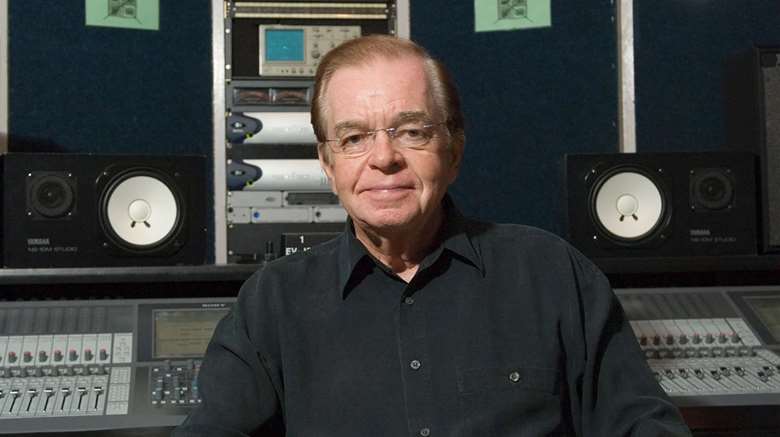Creed Taylor: 13/5/1929 - 23/8/2022
Brian Priestley
Friday, August 26, 2022
Brian Priestley remembers the innovative yet controversial producer who has died age 93

The innovative and controversial producer Creed Taylor made a huge impact on the album market in the 1960s and 70s. A keen trumpeter while studying for a psychology degree, he joined the fledgling Bethlehem label and succeeded with singer Chris Connor and the first 12-inch LP by J.J. Johnson and Kai Winding. Moving to ABC-Paramount’s new record division, he had critical acclaim for the first album by the 23-year-old Quincy Jones and the first Lambert-Hendricks-Ross, with its multiple vocal overdubs.
For many listeners, his greatest achievement at ABC was creating the ¡mpulse! label, with its gatefold sleeves and striking artwork. There, he borrowed Ray Charles from the company’s pop roster, produced Oliver Nelson’s Blues and The Abstract Truth and Gil Evans’s Out Of The Cool, and signed John Coltrane for the unique Africa/Brass album. No immediate follow-ups, though, as Taylor took over the Verve label, recently sold to MGM by Norman Granz.
Ditching numerous Granz stalwarts, he partnered Johnny Hodges with organist Wild Bill Davis and hit the jackpot teaming Stan Getz with the Jazz Samba. A year later came the even more successful Getz/Gilberto, with Astrud G singing the English lyric of ‘Girl From Ipanema’. But new signings led to Bill Evans’s Conversations With Myself, and the first big-band albums of both Jimmy Smith and Wes Montgomery, arranged by Nelson.
A common trend of Taylor’s productions became the commercial arrangements and the frequent choice of pop-songs and/or movie and tv theme-tunes, as was his regular use of Rudy Van Gelder’s up-front rhythm-section sound. Taylor then set up his CTI series, first in partnership with Herb Alpert’s A&M and then from 1970 as an independent label. Retaining collaborators like arranger Don Sebesky, he made middle-of-the-road stars of Freddie Hubbard, Stanley Turrentine and George Benson, and created the more soul-oriented sub-label Kudu featuring Esther Phillips and Grover Washington. A turning-point was his huge 1973 pop-chart hit, Eumir Deodato’s funk version of the theme-music from 2001.
Taylor also retrieved former stars such as Paul Desmond, Chet Baker and Milt Jackson, all backed by electric keyboards and frequent post-facto sweetening devices. But a distribution deal through Motown eventually led to Taylor declaring bankruptcy, although a late success was Nina Simone’s 1978 album Baltimore. His absolute control of production techniques, with or without the lead artists’ agreement, has long become standard, while reissues through Sony and sampling by pop acts have cemented Taylor’s reputation.